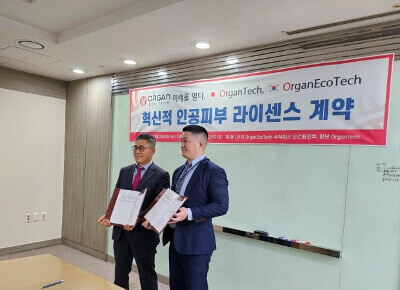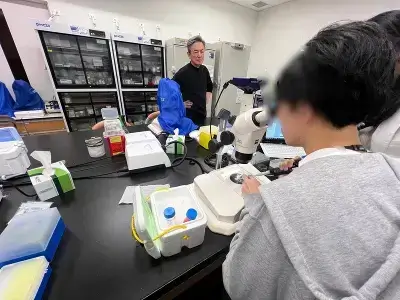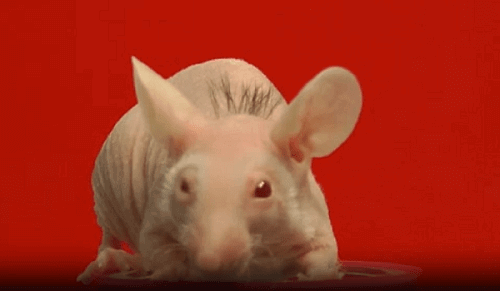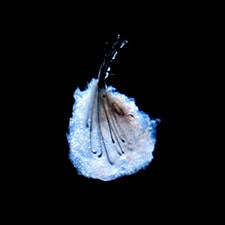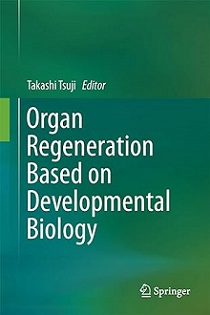 My favorite hair loss researcher Dr. Takashi Tsuji of RIKEN (and OrganTech) is back again. His 2017 book on organ regeneration is now even available on Amazon and includes hair regeneration.
My favorite hair loss researcher Dr. Takashi Tsuji of RIKEN (and OrganTech) is back again. His 2017 book on organ regeneration is now even available on Amazon and includes hair regeneration.
This time, Dr. Tsuji has written an article for the May 2024 edition of the Japanese science journal Newton Press. The below image summarizing his latest work is after Google translation. Also see Tsuji Lab for Organ Regeneration.
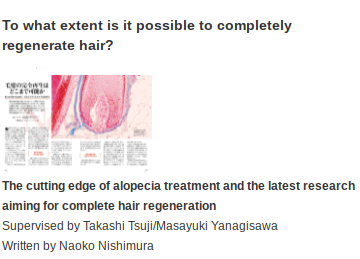
The co-author is Dr. Masayuki Yanagisawa. Interestingly, his team has been reliably following up on very long-term results of Finasteride use for hair loss in Japanese men. They have published 2.5-year, 5-year and 10-year results so far. And they will likely release 15-year results in 2025. A painstaking, large-scale, long-term hair loss patient tracking effort that is unmatched.
Dr. Takashi Tsuji: Complete Hair Regeneration
The full Japanese language Newton magazine article by Dr. Takashi Tsuji can be found on OrganTech’s website. According to “Theo”, below are the main sentences of interest after translation (and corrections by me where I thought necessary):
- Dr. Tsuji is currently developing a regenerative follicle organ with further improvements. This is because it became clear to his RIKEN team that besides hair follicles, the surrounding scalp tissue is also damaged in severe cases of androgenetic alopecia )(AGA).
- In some severe cases, the subcutaneous tissue becomes thinner and harder (Admin: See my articles on thinner and tighter scalps in bald regions and the damaged arrector pili muscles in balding scalps). In this case, even if the follicle organ is transplanted, it will not be reborn.
- Per Dr. Tsuji, they found that stem cells that support the development of hair follicles are missing in some subcutaneous tissues (Admin: Perhaps this is the “missing progenitor cells” in bald areas that we have heard about in the past? Or the phenomenon of escaping hair follicle stem cells?).
- Taking this as an opportunity, Dr. Tsuji’s team has developed the second generation of his hair multiplication process. In this version, they combine the conventional regenerated hair follicle organ primordium (first generation), plus also regenerate hair follicle development related supporting cells.
- In addition, they succeeded in developing the third generation of the seated hair follicle organ, which was cultured in vivo and differentiated to complete hair follicle (Admin: This is above my understanding and I am not sure why they need a third generation).
- Dr. Takashi Tsuji quote:
“If our third generation of regenerative hair follicles can be transplanted, it will be equivalent to self-hair transplantation, and hair-regenerative medicine will be completed.”
However, he warns that it is also important to confirm whether there is no inflammation, infection and cancer. This is not proven in humans as yet. Dr. Tsuji confirmed that inflammation and infection can be controlled, and that malignancy does not occur in mice using the first-generation regenerative hair follicle organ.
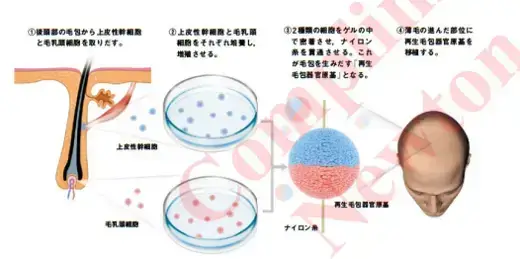
Tsuji and OrganTech Partnership
Dr. Tsuji also mentions that his venture (via OrganTech) has restarted and they are on track to begin clinical research (trials?) in 2024. The company plans to start clinical trials on humans for the second generation after 2026; and for the third generation after 2027.
Just as with Stemson Therapeutics, the time-frame is very disappointing. I am also confused as to whether they are conducting clinical trials in 2024 or clinical research.
Updates from Theo:
Everything is going according to plans. It will be human clinical trials in 2024 for first generation hair follicles with improved growth. They will test two technologies (the old one and the new one).
For third generation hair follicles, I think Dr. Tsuji means technology for totally bald guys without donor hairs. Same thing that Stemson is doing. Stemson will start pre-clinical or clinical trials somewhere in 2026. It will take at least 10-12 years to get to the market and another couple of years to get cheaper.
OrganTech third generation hair follicles will get into human trials by 2027 and it will be on the market by 2030. So, at least 6-7 years earlier than any competition.
Also, OrganTech and OrganEcoTech will start their business partnership for artificial skin on the 1st of April 2024. And that means very good chances at becoming a profitable company with no begging for funding.
Another translation of Dr. Tsuji’s new article:
Theo asked a Japanese guy that he knew from the net to translate the text for me.
Human clinical trials are starting in 2024 for hair follicle organ/primordium first generation.
I asked the Japanese guys if human clinical studies = human clinical trials in Japanese. He told me YES, so do not be confused by the phrase “clinical studies”. It means clinical trials by Western meaning.
OrganTech CEO, Takashi Kondo, in his interview from one month ago also clarified that human trials are starting in 2024.
Also, he sent me the below text with 100% correct translation. Admin: Seems close enough to the previous translation.
There’s a problem in serious cases of AGA where the hypodermis becomes thin, leading to it stiffening. In cases where this has happened, transplanting hair follicles will not result in hair regrowth.
They looked into the problem, and found that the stem cells responsible for supporting the development of hair follicles is located in part of the hypodermis, and that function had become lost.
Because of this, they decided to work on a second generation of regenerative hair follicles. This combines their initial first generation (hair follicle restoration organ copies) with hair follicle development organ copies (copies of the stem cells the hypodermis is missing).
They managed to cultivate this second generation of regenerative hair follicles outside of a living organism, and separate out a complete hair follicle. They say they also succeeded in creating a third generation restorative hair follicle organ.
They are planning on human clinical studies for the 2nd generation hair follicle in 2026, and 3rd generation in 2027.
Dr. Tsuji claims that if they succeed in transplanting their 3rd generation restorative hair follicle organ, it will be just like transplanting real hair. A perfect hair restoration procedure. However, even if it works on mice, it doesn’t mean that it will be easy to get it to work on humans. They need to be sure that it won’t have problems with inflammation, infection or cancer.
Inflammation and infection are manageable problems (if they even happen in the first place). Moreover, they have confirmed that the mice that the first generation hair follicle regeneration technology was used upon did not develop cancer.
